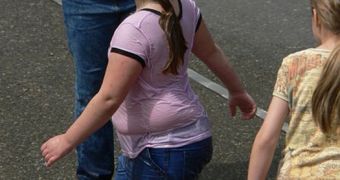A paper published in the latest online issue of the esteemed medical journal Archives of Disease in Childhood suggests that babies delivered via Caesarean section are twice more likely to become obese during childhood than peers born naturally.
The findings are very worrying, since 33 percent of children born in the United States are delivered via C-section. Past investigations have linked this method of delivery with an increased risk of developing allergic rhinitis and asthma during childhood as well.
However, there is no other way of delivering babies during troublesome births that endanger the mother, or when various other issues arise. The new investigation was carried out on 1,255 mothers and their babies, from 8 outpatient maternities in Massachusetts.
The births occurred between 1999 and 2002, the study team reports. The babies were analyzed (measured, weighed, etc.) at birth, at the ages of 6 months and 3 years. During the last assessment, scientists also measured the children's skinfold thickness, which indicated body fat.
In the study group, 284 mothers had given birth through C-section, while the other 971 delivered naturally. Women in the first group were, on average, more likely to breastfeed their babies for shorter periods of time, and had infants with a higher body weight.
By the age of 3, children born through C-section were twice more likely to become obese than their peers. The correlation held even after researchers checked for the mothers' body-mass indexes (BMI) and other factors that may have skewed the results.
Around 16 percent of the C-section babies were obese by age 3, compared to just 7.5 percent of kids delivered naturally. On average, infants in the first group had a higher BMI and skinfold thickness, too.
“An association between Caesarean birth and increased risk of childhood obesity would provide an important rationale to avoid non-medically indicated Caesarean section,” the research group writes in the new journal entry.
The investigation was led by expert Susanna Y Huh, who is based at the Children's Hospital Boston's Division of Gastroenterology and Nutrition, e! Science News reports.

 14 DAY TRIAL //
14 DAY TRIAL //